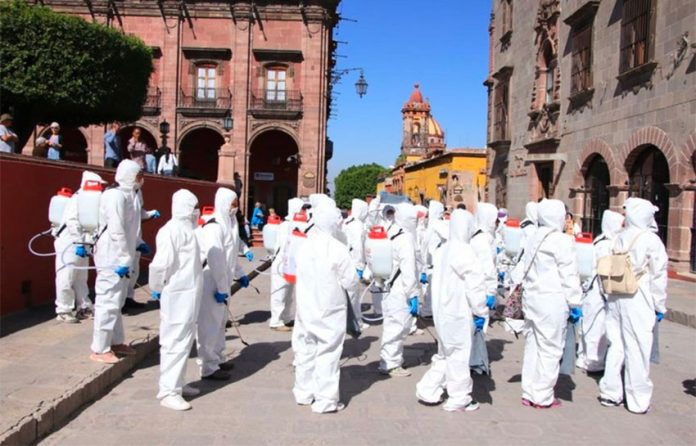The San Miguel de Allende municipal council approved the placement of health checkpoints at the entrances of the historic, central highlands city in Guanajuato.
As of June 1, the checkpoints will be activated “as a preventative measure to return the city of San Miguel de Allende to normality, in the face of the coronavirus contingency,” said the council in a statement.
The checkpoints will be placed at the bus station as well as the four highways leading into town and manned by the National Guard, the municipal police, Civil Protection and the Ministry of Health.
All vehicles entering San Miguel will be stopped and passengers and drivers will have their temperatures checked and be provided with hand sanitizer. They will be asked the purpose of their visit and their names, places of origin, ages and phone numbers will be recorded and registered with health officials.
On Wednesday night, the council also approved guidelines for a four-phase, staggered reopening of the economy.
In the first phase, most retail stores will be allowed to reopen, including restaurants and beauty salons.
The next phase will see public parks, theaters, libraries, cultural centers, churches and churches follow suit.
During phase three, sports centers such as gyms and community athletic fields will begin operating again.
And in phase four, bars, nightclubs, museums, spas, tourist activities and private vacation home rentals, such as Airbnb, will be allowed to reopen.
Guanajuato currently has a “green light” on the federal government’s stoplight rating system, meaning federal restrictions may be lifted as of June 1. The state has 897 confirmed cases of the coronavirus and had recorded 84 deaths as of Thursday.
There have been 14 confirmed cases in San Miguel and no deaths reported.
Source: La Jornada (sp)
